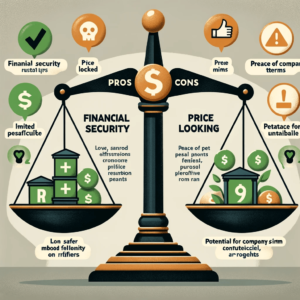Several resources provide step-by-step checklists for vital financial planning for widows. These checklists typically cover essential tasks such as organizing important documents, understanding financial options, and making informed decisions. Here are some common steps found in these checklists:
- Gather Important Documents: Collect wills, life insurance policies, and asset information.
- Understand Financial Options: Educate yourself about available financial help, survivor benefits, and potential sources of income.
- Work with a Financial Professional: Consider seeking guidance from a trusted financial advisor to help navigate major financial decisions and plan for the future.
- Obtain Copies of Important Documents: Such as the death certificate, which is essential for settling affairs[5].
- Organize Financial Statements: Arrange all financial documents and statements chronologically to gain a clear overview of your financial situation.
These checklists aim to provide practical guidance and support for widows during a challenging time, helping them make informed financial decisions and plan for the future.
What are some common financial mistakes widows make
Some common financial mistakes widows make include:
- Rushing to Make Lifestyle Changes: Making hasty decisions about lifestyle changes, investments, or major purchases due to pressure from friends, family, or advisors.
- Operating Solo Without Financial Knowledge: Failing to educate themselves about family finances and investment matters, especially if the deceased spouse was the primary decision-maker.
- Being Too Trusting: Being quick to trust new individuals, especially in vulnerable states, which can lead to falling victim to scams or unwise financial decisions.
- Spending Too Much: Overestimating available funds and making excessive purchases without a clear understanding of the financial situation.
- Making Important Decisions During Grief: Engaging in significant financial decision-making during a period of grief, when cognitive function may be impaired.
These mistakes can have long-lasting impacts on a widow’s financial well-being. It’s important for widows to take their time, seek financial education, and make informed decisions, especially during the challenging period after the loss of a spouse.
What are some common emotional challenges widows face when managing finances
Widows often face various emotional challenges when managing finances, including:
- Financial Anxiety and Avoidance: Some widows may experience financial anxiety and avoidance due to underlying money beliefs, which can make it difficult for them to engage with financial matters.
- Change in Financial Status: Widows may experience a change in their financial status following the loss of their spouse, leading to expectations from others and themselves based on their new circumstances.
- Lack of Financial Knowledge: Many widows may not have been actively involved in managing family finances and may lack the necessary knowledge to make informed financial decisions.
- Grief and Cognitive Function: The emotional impact of grief can affect cognitive function, making it challenging to make sound financial decisions during this period.
- Decline in Standard of Living: The financial impact of widowhood can lead to a decline in the standard of living for the surviving spouse, as household income may decrease due to changes in Social Security benefits and other factors.
These emotional challenges highlight the importance of providing support and resources to help widows navigate the complexities of managing their finances during a difficult and vulnerable time.
How to prioritize financial decisions when grieving
When prioritizing financial decisions while grieving, it’s important to approach the process with care and consideration. Here are some key insights from the search results:
- Prioritize Basic Needs: Focus on maintaining stability by prioritizing basic needs, such as managing immediate expenses and understanding the timeline for covering essential costs.
- Seek Professional Guidance: Consider consulting with a financial advisor or planner to help navigate important financial decisions and gain support in organizing financial information and prioritizing tasks.
- Take Time for Decision-Making: Give yourself the time and space to process the immediate shock associated with grief before making any significant financial decisions. Avoid rushing into major choices while experiencing grief, as it can impact decision-making.
- Educate Yourself: If you are not familiar with managing family finances, take the time to educate yourself and seek support in understanding your financial situation and options.
- Avoid Impulsive Decisions: Be cautious of making impulsive financial decisions driven by emotion. It’s essential to focus on finding a smart and practical financial plan, especially during a period of grie.
By approaching financial decisions with patience, seeking support, and prioritizing basic needs, individuals can navigate the complexities of managing finances during the grieving process more effectively.
How to determine which financial decisions are most important when grieving
When determining which financial decisions are most important while grieving, it’s crucial to approach the process with care and consideration. Here are some key insights from the search results:
- Work with Professionals: Consider working with a lawyer to settle the estate and an insurance specialist to review health care and life insurance coverage.
- Delay Non-Urgent Decisions: It’s advisable not to make non-essential financial decisions while grieving, as grief can affect the ability to make sound choices. Most financial decisions are not as urgent as they might seem, so it’s recommended to put off anything that can wait during a time of grief.
- Seek Support: Engage the help of a financial advisor or planner to assist in organizing financial information, prioritizing tasks, and providing support during the grieving process.
- Prioritize Basic Needs: Focus on maintaining stability by prioritizing basic needs, such as managing immediate expenses and understanding the timeline for covering essential costs.
- Avoid Impulsive Decisions: It’s important to avoid making significant financial decisions driven by emotion. Grief can cloud judgment, so waiting until there is a clearer perspective can prevent costly mistakes.
By working with professionals, delaying non-urgent decisions, seeking support, prioritizing basic needs, and avoiding impulsive choices, individuals can navigate the complexities of managing finances during the grieving process more effectively.
How to create a budget when grieving
When creating a budget while grieving, it’s important to approach the process with compassion and practicality. Here are some steps to consider based on the provided search results:
- Prioritize Basic Needs: Focus on maintaining stability by prioritizing essential expenses, such as housing, food, and healthcare, to ensure your basic needs are met during the grieving process.
- Establish a Budget: Creating a budget can provide a clear, practical way to outline your income and necessary expenses, helping you regain a sense of control over your financial situation.
- Seek Professional Support: Consider working with a financial advisor or planner to assist in organizing financial information, prioritizing tasks, and providing support during the budgeting process.
- Avoid Impulsive Spending: Be mindful of impulsive spending behaviors driven by grief. Setting limits and seeking healthier coping mechanisms can help manage spending habits during this challenging time.
- Give Yourself Time: It’s important to give yourself the time and space to make sound financial decisions. Avoid rushing the budgeting process and allow yourself the grace to recover before finalizing important financial plans.
By prioritizing basic needs, seeking professional support, avoiding impulsive spending, and allowing yourself the necessary time, you can create a budget that supports your financial well-being during the grieving process.

